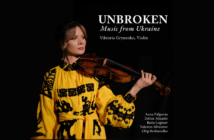
This page is also available in / Cette page est également disponible en:
![]() Francais (French)
Francais (French)
Following along the narrow streets of Utrecht’s medieval city centre, I am drawn to its charming, sinuous canals winding through bridges upon which rest innumerable bikes, like ornaments hanging over their oval arches.
A city with the soul of a scholar, Utrecht hosts one of the world’s leading Early Music festivals and, this year, the Second International Conference on Cognitive and Computational Musicology.
Held at Utrecht University (UU) in the Netherlands, the Oct. 17-18 conference marked the establishment of the Music Information Computing Group at the Department of Information and Computing Sciences and celebrated Prof. Frans Wiering’s official retirement. A pioneer at the intersection of musicology and computer science, Wiering was joined by co-organizers and collaborators Peter van Kranenburg, Mirjam Visscher, and Anja Volk—all accomplished researchers and Early Music aficionados.
The conference’s Early Music theme gathered international experts from some 15 different countries to discuss topics such as music information retrieval, digital editions of Renaissance lute music, and performance analysis.
Narrowly avoiding collision with waves of headstrong cyclists rushing through the city, I made my way to the impressive Science Park on Utrecht’s periphery. The conference unofficially began with a mini music computing hackathon, with the goal of developing a code to automatically detect cadences in pitch measurements of Renaissance music audio files.
The first official day of the conference took place in the Botanical Gardens, covering topics such as music computing, health-related studies involving rhythmic stimuli in NICUs, computational ethnomusicology comparing Estonian and Finnish folk dances, Iranian traditional music studies, and analysis of melodic contours in Qur’an recitation.
An international team of researchers known as the E-LAUTE group (Electronic Linked Annotated Unified Tablature Edition) presented their work on digital encodings of Renaissance lute tablatures. “These encodings open possibilities for computational analysis of the (lute tablature) corpus and for building a critical apparatus that enables comparisons between German, French, Italian tablatures and common music notation,” says Ilias Kyriazis, one of the group’s investigators based in Vienna.
I presented a poster on my PhD research at the Université de Montréal, which focused on the computational analysis of Baroque performance practices at the modern piano. By modelling live interpretation according to romantic, modern, and rhetoric principles, two different pianists performed keyboard works by Johann Sebastian Bach and Christoph Graupner in a variety of styles. Quantitative data analysis from two case studies showed nuances in performance parameters such as articulation, pedalling, tempo, ornamentation, phrasing, timing, and dynamics between each recorded style.
The conference’s second day delved deeper into early-music computing, covering audio analysis, authorship attribution, and pattern recognition in polyphonic music. Wiering closed the event by reviewing the milestones of his illustrious career, with discussions underway for the next conference.
For more on the Utrecht conference visit www.uu.nl/en/research/interaction/second-international-conference-on-computational-and-cognitive-musicology
This page is also available in / Cette page est également disponible en:
![]() Francais (French)
Francais (French)















